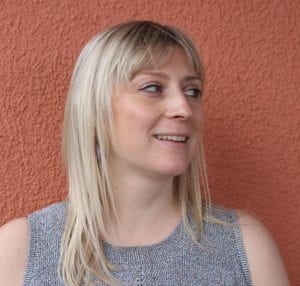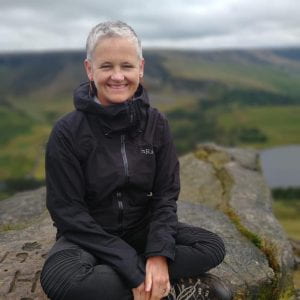Context: ‘My original proposal’
 I led the development, set up, pilot and evaluation of the BOOST Finance Project and now manage it. This collaborative, innovative, project was in direct response to community feedback and places community engagement, expertise and experience at its foundation, with an organic approach that allowed for the development of the service to be guided by and respond to the presenting needs of the community, seeing the participants as the experts of their own lives. The approach responds to the barriers that create the communities’ sense of disempowerment and develops partnerships to respond. I am in the process of establishing an Economic Development Partnership with geographic partners. Strategic questions for investigation include looking at a ‘wider development’, piloting the tool in other geographic locations to fit differing presenting geographic issues, as the economic development partnership offers, or ‘deeper development’, offering more in our direct community for example engaging in the opportunities the Temple Quarter development presents for this community. As part of the fellowship programme I want to develop collaboration with both the University of Bristol, the local authority and wider collaborators to ensure the opportunities being developed on the doorstep of the Lawrence Hill ward are available to and benefit this community. The BOOST model is part of this and lends itself to informed development and innovative response.
I led the development, set up, pilot and evaluation of the BOOST Finance Project and now manage it. This collaborative, innovative, project was in direct response to community feedback and places community engagement, expertise and experience at its foundation, with an organic approach that allowed for the development of the service to be guided by and respond to the presenting needs of the community, seeing the participants as the experts of their own lives. The approach responds to the barriers that create the communities’ sense of disempowerment and develops partnerships to respond. I am in the process of establishing an Economic Development Partnership with geographic partners. Strategic questions for investigation include looking at a ‘wider development’, piloting the tool in other geographic locations to fit differing presenting geographic issues, as the economic development partnership offers, or ‘deeper development’, offering more in our direct community for example engaging in the opportunities the Temple Quarter development presents for this community. As part of the fellowship programme I want to develop collaboration with both the University of Bristol, the local authority and wider collaborators to ensure the opportunities being developed on the doorstep of the Lawrence Hill ward are available to and benefit this community. The BOOST model is part of this and lends itself to informed development and innovative response.
Covid-19/other
In its most immediate sense BOOST Finance has had to pause direct delivery as it has been impossible to continue a drop-in based service during this time. We have redirected our organisational energises into meeting the immediate practical and emotional needs of the community during this difficult period. This has included a call centre and befriending service, food delivery and shopping services, prescription collection and delivery service, family services including delivery of arts and craft, nappies, formula milk, children’s clothing and monitored use of our Family Centre garden for families in over-crowded high rise flats as well as support to and the establishing of mutual aid provisions across Lawrence Hill. With the support of Bristol University we have been able to engage a proportion of the community in a series of survey’s to assess the ongoing and changing needs and aspirations of the community we work with to ensure our Covid19 Emergency Response Service adapts and meets this community’s needs.
What that means for me
Much of the opportunity the City Fellows provided was the chance to collaborate with others to help both develop the BOOST model across the City through the development of a Community Partner Economic Development Partnership and make connections on ‘our doorstep’ to ensure the opportunities that present through the Temple Quarter development reach this area has been put on hold. Much of this has had to go on hold with much more of an immediate, inwards focusing approach being needed.
As we enter a new phase of the pandemic situation communities are facing more immediate challenges. Many are dealing with either reductions or loses of income, rising debts, challenges to mental health, anxieties of having to step out into the world again, children returning to school, mixed messages from government which are confused and unclear whilst challenges that were present before Covid19 are exacerbated. Meeting up on any level, other than virtually, continues to be very difficult and for those groups on the margins of decision-making processes, the reality of digital exclusion, either through means or skill is ever apparent and make this type of engagement impossible. It has been difficult to maintain focus on a City Fellowship program when my role has and continues to be very directly involved in the response to the needs of our community through this time. Services are struggling to reopen under government guidance we are seeing more issues that are not ‘emergency response’ type interventions but either gaps in service provision due to COVID19 service closures or gaps that have always been in the system.
Challenges that this has presented
My interpretation of this heading is how this is affecting my original vision when joining the fellowship and where I find myself now. There is a strong argument to say that despite the winding path I find myself on, it is all relevant as we look to be informed and directed by the communities we are involved in as communities at the margins. Collaboration on any level remains a challenge in times of social distancing and a rapidly fluxing and changing working and community environment. Things feel at an another precipice. The government appears to be shifting its narrative on to one of blame, of illegal activities, of bans, of new laws, of stronger enforcement of the rules, of fines, of Covid-secure Marshalls, of curfews and punitive action, the language of community spirit and togetherness appears to be rapidly disappearing, the sense that we are all in this together, of Thursday night appreciative clapping sessions. The challenge now is how do we hold on to a sense of hope, empowerment and community in light of the ongoing Covid19 challenge?
Opportunities this offers
Covid19 and recent events have laid bare the very real social inequalities that exist. As food poverty and the benefit system take centre stage, along with other issues, we have an opportunity to act and promote these issues as for a short period of time for some, they will be able to relate to what it actually feels like to be unable to feed your family, not nowhere the next meal is coming from and experience of having to navigate a very confusing and opaque benefit system as peoples financial securities have come into question through no fault of their own, challenging a carefully orchestrated ‘undeserving poor’ rhetoric that has been feed to us over this last decade or so.
I recently attended a Finance Bristol & Bath Recovery Planning workshop facilitated by Bristol’s One City Economic Board which is a filter into the production of an economic recovery strategy and associated actions plans for Bristol, the mood from this was very much one of challenge to the notion of recovery, posing recovery as suggesting that overcoming and reverting back to the ‘norm’, when it is clear the economic system does not work for all, and that an economy that is addicted to growth and profit maximisation should surely not be the driving force of economy ‘recovery’ when the very state of it is creating additional anxiety and stress for those who have lost or are at risk of losing their income and livelihoods.
What are your priorities moving forward?
Prioritise moving forward are learning from the redesign and repurpose model we ran as a response to the lockdown we experienced in late March for several months. Learning form this model again places emphasis on the need for us to refocus our work as an organisation to fit holistically around people recognising them as multifaceted as opposed to labelling issues and syphoning them into silo’s, for example parents access the family services, those with debt and employment issues access BOOST etc. We are exploring a Community First response that builds on an asset–based community model that looks to the community for the solutions through our Network project, with project expertise where necessary, but not as a defining point. This is broadening the BOOST Finance model out to in–cooperate our approach organisationally, as opposed to project, wide. We are envisaging BOOST Finance being in high demand going forwards, there are funding implications around being able to meet this need as are adapting the model to be delivered in a ‘socially distanced’ way.
As we move into a second stage response the BOOST Finance model has now set up a Food Club in Lawrence Hill, in partnership with Family Action. In the first 6weeks of operations we have had 27 members joining, whose membership has benefitted an additional 20+ adults and 46+ children. Many members are working but finding it increasingly difficult to make ends meet, others are struggling either on benefits or in the process of managing changes to their financial situation.




 Before setting up the City Fellows programme, Helen Manchester and I were working on a
Before setting up the City Fellows programme, Helen Manchester and I were working on a  City Decision Making
City Decision Making